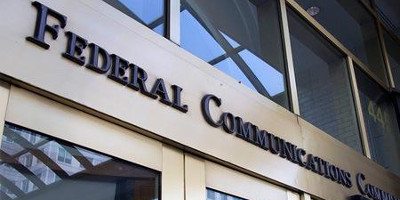FCC Wants Additional Comments on C-Band Issue
WASHINGTON—As concerns continued to be raised about the future of C-Band spectrum, the Federal Communications Commission is asking for additional comments on exactly how it should go about making this mid-band spectrum available for next-gen broadband and wireless services.

In July 2018, the commission adopted an Order and a Notice of Proposed Rulemaking that began the process of collecting information about earth stations and space stations as well as on the impact of adding a mobile allocation to the 3.7–4.2 GHz band.
Commenters have since weighed in—some have thrown their support behind the move; others have raised concerns about protecting existing users, who rely on C-Band spectrum as well as questioned the commission’s authority to reallocate users.
One of those commenters, Sen. John Kennedy (R-LA), wrote a letter to FCC Chairman Ajit Pai in April expressing concerns about a proposal made by the C-Band Alliance. The alliance’s Transition Implementation Process details the CBA’s proposed approach to clearing 200 MHz of the C-Band in 18–36 months for terrestrial 5G use.
“A privately-managed spectrum sale conducted behind closed doors will favor certain parties, exclude others and most importantly, lead to the inefficient deployment of valuable 5G spectrum,” Kennedy wrote. He called on the FCC to conduct a public auction to allow for the most competitive allocation of licenses for future 5G deployment.
On May 3, the commission formally asked for additional comment on two wide-ranging questions.
The first: what are the enforceable interference protection rights for space station operators against co-primary terrestrial operations? And are those rights impacted whether or not transmissions are received within the U.S.?
Get the TV Tech Newsletter
The professional video industry's #1 source for news, trends and product and tech information. Sign up below.
And the second: what are the protection rights granted to licensed or registered receive-only earth station operators against co-primary terrestrial operations? And on those same lines, are those operators eligible to voluntarily relinquish their rights to protection from harmful interference in the reverse phase of an incentive auction because they qualify as licenses?
The commission also asked for comment on whether there are any other rules or sources of authority it should consider in addressing the question of how to accommodate licensed or registered earth station operators that may be displaced as a result of repurposing of the C-Band.
Those interested in filing should do so using Docket No. 18-122, RM-11791 and RM-11778 through the FCC’s Electronic Comment Filing System. Comments will be accepted 30 days after the notice has been published in the Federal Register, with reply comments coming 45 days after filing.
Susan Ashworth is the former editor of TV Technology. In addition to her work covering the broadcast television industry, she has served as editor of two housing finance magazines and written about topics as varied as education, radio, chess, music and sports. Outside of her life as a writer, she recently served as president of a local nonprofit organization supporting girls in baseball.

